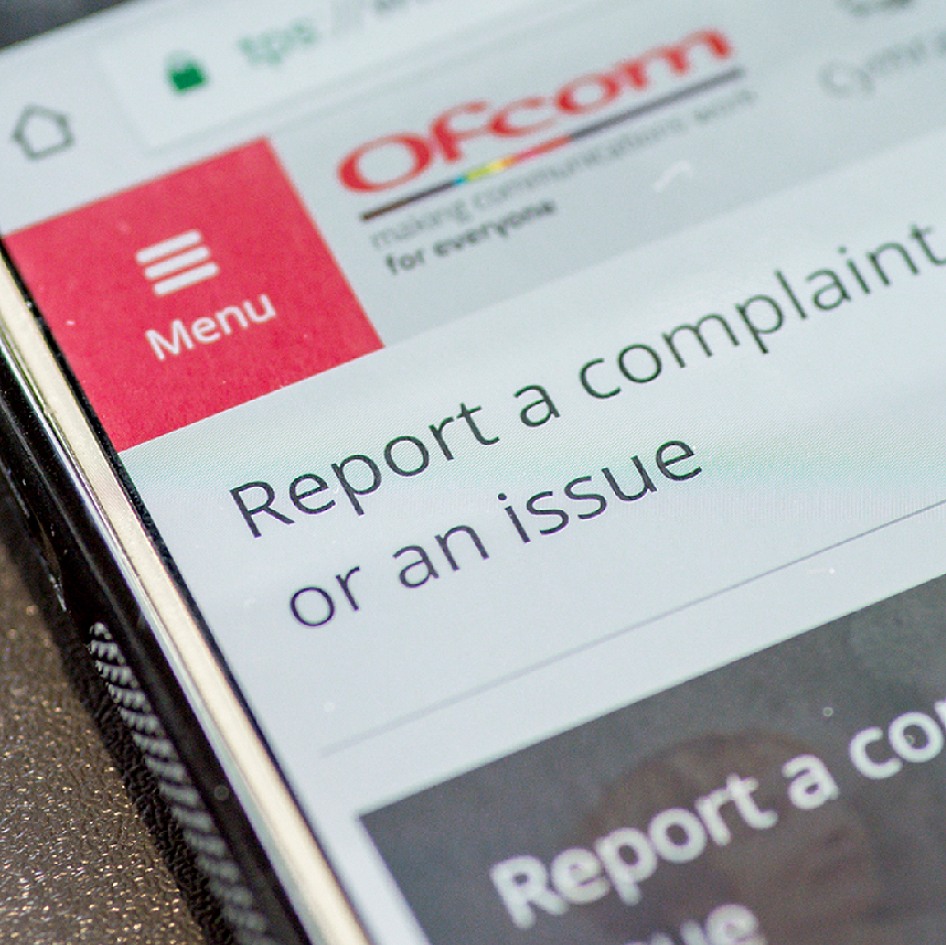Mobile Operators Strike UK Network Sharing Deal for Rural Coverage
Mobile operators EE (BT), Vodafone, O2 and Three UK have confirmed a new agreement that could help to boost the rural coverage of their 2G, 3G, 4G and future 5G networks. Under the deal a new infrastructure company will be established to help build masts in remote areas. Now they just need Ofcom to agree.
The current Government has already said that they want mobile networks to deliver 95% geographic coverage of the UK by 2022 (here), ideally via 4G or faster network technology (the manifesto commitment wasn’t specific). By comparison Ofcom notes that at present the 4G geographic coverage from all operators is just 67% of the UK (91% if only looking at EE) and this reaches 78% when including older 2G and 3G services (here).
The problem is that catering for remote rural areas is very expensive (not profitable) and there have been big disagreements over how to achieve the desired outcome. One option, the idea of so-called Rural Roaming, was rejected by EE because they viewed it as giving a free ride to rivals that haven’t made the same investment (excluding ESN masts as those can be shared), not to mention stifling the attraction of future investments.
Similarly the proposed coverage obligation under Ofcom’s forthcoming auction of the 5G friendly 700MHz band (here) hasn’t been particularly popular either, not least since it only aims for the lower coverage figure of “at least” 90% (geographic), will take years to deploy via 5G and the related spectrum discounts on offer could only be enjoyed by two of the winning bidders.
The New Approach
Instead the industry has been working toward another solution, which may allow operators to share masts / mast space more easily (reciprocal) in order to install new radio kit so as to improve rural coverage. The idea of mutually beneficial infrastructure could, if priced and regulated fairly, prove to be useful over the longer-term. Indeed it may even result in fewer masts being needed to cover the same area (i.e. saving operators money).
Most of this would be overseen by a new company, which will be responsible for managing the build of new masts and supplying them with the necessary power and fibre optic data capacity links. The agreed proposal would see Ofcom acting as the referee for the legally-binding measures, so as to ensure fairness.
Just to be clear, there are actually two sides to this proposal. The sharing of existing masts and the building of new masts, which could also be shared. One crucial detail of the proposal for new masts is that it would need to be demand-led, which is a clever way of managing the catch-22 problem where local residents object to new masts being built during the planning permission stage (some of the same folk will often complain of poor signals).
Nick Jeffery, Vodafone UK’s CEO, said (Total Telecom):
“We know that access to a fast and reliable mobile network is important to how we live, work and travel. This is as true for those in remote areas as it is for those in our towns and cities. That is why our proposal on a shared rural mobile network is so crucial. It will give consumers improved rural mobile coverage while using far fewer masts.
Vodafone will continue to throw its full weight behind the proposal and work with government and the rest of industry to make it a reality.”
A Spokesperson for Ofcom said:
“We’re encouraged to see mobile companies working together on proposals to improve coverage, and would consider carefully any firm plans from industry.”
However, there are a few catches. One caveat in all this is that it won’t resolve any underlying challenges with gaining access to fibre optic lines (current voucher schemes will only get you so far), and in some cases a good power supply, in remote rural areas. High capacity Microwave links may help to solve some of these issues but ideally future 5G services will need fibre, particularly with several operators on a single mast.
The other challenge is with how the mobile operators have demanded that Ofcom remove or significantly soften the recently proposed coverage obligation, which was intended to form part of the regulator’s auction of the 700MHz radio spectrum band (targeted at future 5G services).
The new company would thus be funded by a reduction in the £200m annual licence fees paid by the industry. The mobile operators claim this would replace discounts of £700-£800m, which have been attached to some licences in Ofcom’s aforementioned auction proposal. The regulator is open to considering this but it first wants the operators to resolve some unspecified issues (ideally within the next month).
We suspect the regulator may fear that, without an associated coverage obligation, the mobile operators could lack enough self-encouragement to actually make use of the new agreement (i.e. wilful foot dragging). On the other hand this is the first time that such bitter rivals have come together in this way, which should not be underestimated. It would be a shame if the opportunity was lost.
The ball, as the saying goes, is now in Ofcom and the Government’s court. Some sort of compromise will be needed, which in turn seems likely to suggest that another consultation will be required before the 700MHz band can be auctioned off (i.e. possibly equal to another delay, albeit a short one if we assume a pre-agreement with industry exists).
However, this proposal may ultimately be better than trying to force tougher regulations upon the industry, which could be difficult to introduce and we suspect may also end up being delayed by lengthy legal challenges (as seems to be customary in this industry).
Mark is a professional technology writer, IT consultant and computer engineer from Dorset (England), he also founded ISPreview in 1999 and enjoys analysing the latest telecoms and broadband developments. Find me on X (Twitter), Mastodon, Facebook and Linkedin.
« UK Infrastructure Chief Warns Gov Not to Make “Vague Promises”
Durham UK Council Prep Phase 3 Superfast Broadband Rollout »
Latest UK ISP News
- FTTP (5513)
- BT (3514)
- Politics (2535)
- Openreach (2297)
- Business (2261)
- Building Digital UK (2243)
- FTTC (2043)
- Mobile Broadband (1972)
- Statistics (1788)
- 4G (1663)
- Virgin Media (1619)
- Ofcom Regulation (1460)
- Fibre Optic (1394)
- Wireless Internet (1389)
- FTTH (1381)
























































Why would they need ofcom approved first?
This should be obvious, but operators are saying “you can do it your way, or you can do it our way”. The choice is dependent upon what the regulator does with its 700MHz auction, inc. related obligation and discounts, hence the need for agreement from Ofcom. They aren’t going to do it for nothing.
Voucher schemes are not related to mobile mast connectivity. Ethernet circuits available almost anywhere?
it should be long time ago that operators should have the same masts and compete with each other using price and additional services. Building together masts maximally minimizes the price which should be reflected in the price of the customer service
This is the better option. All four need to be sharing sites & infrastructure.
Rural Roaming is definitely not the way to go about it.
Perhaps the 292 masts for rural in the emergency services network referenced last week can be re-used.
Not everywhere that doesn’t have coverage is rural. My area is classified by OFCOM as suburban. Perhaps a solution should be found for the AONB areas, there not all quaint villages with a stream and half a dozen houses,these are the areas that need something. It’s affecting shops, business and visitors.
Didn’t the broadcasters do something similar some decades ago, instead of maintaining separate masts for BBC and ITV?
On a separate note, the banks do/did something similar with cashpoints.
Whilst they were free to customers, they would charge the banks in question a small amount that would – in theory – balance out. It gave the banks some incentive to position them better iirc.
What counts as “rural”?
Is this just for the most remote of “rural” areas, or villages and small towns? Is it defined by the number of mobile operators that provide coverage at 3G/4G, with those places that have below a certain number of providers currently having a signal being considered as somewhere that this would be implemented?
The thing is, rural also covers main road arteries too. This seems like a good idea although I never buy the it costs too much argument.. but I do believe their are plenty of idiots blocking masts being built, then moaning they can’t get a decent signal…
They need to get this sorted once and for all, the U.K. land mass is microscopic compared to other nations! And we are the fifth biggest economy, apparently, yet we don’t have full mobile coverage despite the fact millions and millions of us own one, and the U.K. market is one of the best and most mature.
Did Ofcom ever give an update on this? The announced month`s wait is over and I wonder if and how they will move on these plans.